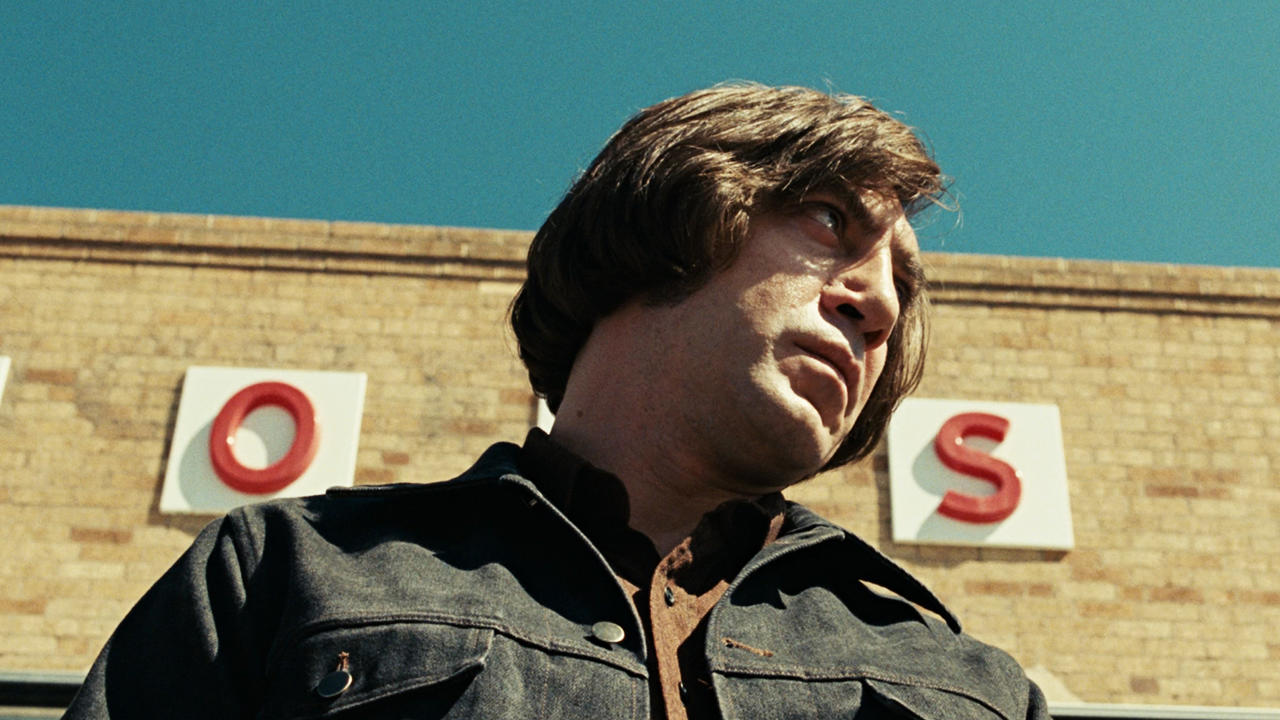
The 21st century may only be in its infancy but audiences have been provided with a plethora of great films by great filmmakers; there are surely works released in these past 17 years which will be defined as classics in future decades. Hollywood and America has provided numerous such examples. Auteurs of previous eras have made prominent pictures; new filmmakers of note have emerged in this young century to find their place on the cinematic landscape.
When attempting to decide on the best American releases of the 21st century, it was important to only include works that felt truly, quintessentially American: films not necessarily made by citizens, or made by a Hollywood studio, but rather films which had something to say about the country.
The 10 films featured on this list are resplendent with an American spirit, and capture in their small part a sense of what it means to be an American, be it in modern times or of a certain period of its complicated history.
10. Certain Women
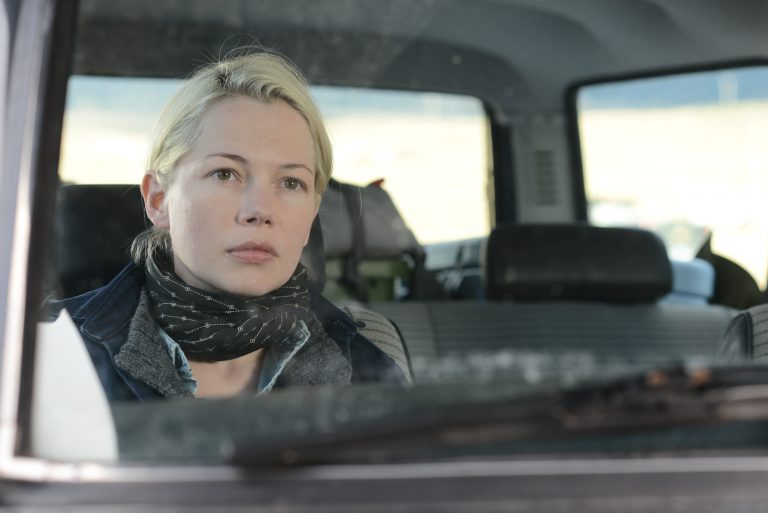
Kelly Reichardt established herself as a crafter of superbly meditative films in the early 21st century; a provider of pensive quiet amidst the jostle of the chaotic and loud mainstream cinematic landscape.
With Certain Women (2016), she made her finest picture yet. It ties together three short stories by writer Maile Meloy, its loose structure concerns three professional women living in Montana and their encounters with other locals: Laura, a small-town lawyer dealing with a difficult client; Gina, a wife and mother trying to build her family a new house from scratch; and Jamie, a lonely rancher who makes a connection with a young lawyer, Beth, at a night school class.
The acting is uniformly moving, but it’s Lily Gladstone, a newcomer, as Jamie who’s a complete revelation in one of the best debuts in recent memory. A local of Native American heritage, her openness and vulnerability defy her built frame as she’s ultimately shunned by Kristen Stewart’s sullen and shackled lawyer. The slow movement of the narrative seems perfectly aligned with the quiet of the mountainous and sparse Montana backdrop.
Reichardt shows her characters just trying to make their way contentedly against unwelcoming men and difficult labour; it’s not a romanticized view of life in the state. It’s an ambiguous and contradictory work. There is drama in the story, like when Laura has to deal with an armed hostage situation but it’s so understated to be barely noticeable; there seems to be lessons in the narrative – the lack of compassion from men to women, subtle class differences of such a society – but they’re determinedly hidden in the film for the viewer to discern and consider for themselves.
Certain Women is a necessary meditation on women in a relatively unconsidered part of America. Reichardt feels like cinema’s poetic messenger for the American Northwest, a distinct and unique voice needed now more than ever.
9. Brokeback Mountain
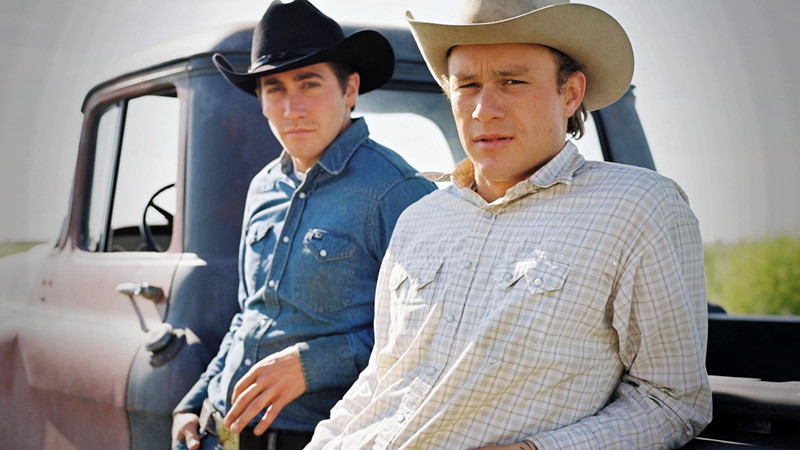
Brokeback Mountain (2005) has become one of those special types of films that one knows everything about even if they haven’t actually seen it. It won three Academy Awards (despite controversially losing out on Best Picture to the much-maligned Crash), after being nominated for a total of eight, and became known as, to the uninitiated, the ‘gay cowboy movie’. This is a wild oversimplification, however.
Ang Lee’s adaptation of Annie Proulx’s 1997 short story of the same name overlaid the romance genre on the Western film, creating a neo-Western completely of its own. The film details the emotional and sexual relationship between Ennis Del Mar and Jack Twist in Wyoming from 1963 to 1983. Thrown together on a sheep herding job, they quickly find solace in each other’s companionship in the loneliness of the mountains.
The casting of Heath Ledger and Jake Gyllenhall as the couple felt appropriate: casting two of Hollywood’s most famed starlets seemed like another bold riposte against the classic white hetero-macho male of American films like these. The image of two strong, capable men having sex in their tent was an unexpected but welcoming twist on the traditional idea of the American cowboy in the outback.
Much of the emotional weight of the film comes in the silences, for people like Ennis and Jack aren’t known for their articulation. It becomes heartbreaking to watch these men try and understand what is happening between them. Both actors perform their roles immensely but it’s Ledger as the closed-off Ennis who greater excels: he completely immerses himself in this broken man, inhabiting his tortured psychological nature, perceivable in every hurt look, and stopped speech.
The reason for the aforementioned oversimplification is that what transpires between the two men is so much more: their story is the story of a time and place where men had no choice but to deny their true nature. Cowboys weren’t supposed to have deep feelings, or at least weren’t meant to explicitly show them. Much debate has surrounded whether Ennis and Jack are even homosexuals, with their sexuality seeming ambiguous (they both find wives after their relationship has come to an abrupt end). In this way, what Lee shows is a universal love story; not gay or straight, only human.
Lee also fortunately never crafts his film into a sermon. By focusing so intently on the profound connection between the two men, there is no reduction to gay stereotypes and the LGBT issue is never forced, merely there. A deeply American work despite its subversion of American film tropes, Brokeback Mountain stands as significant, thanks to its attention to the inner emotions of a relationship between two people, universal in it love and tragedy.
8. Django Unchained
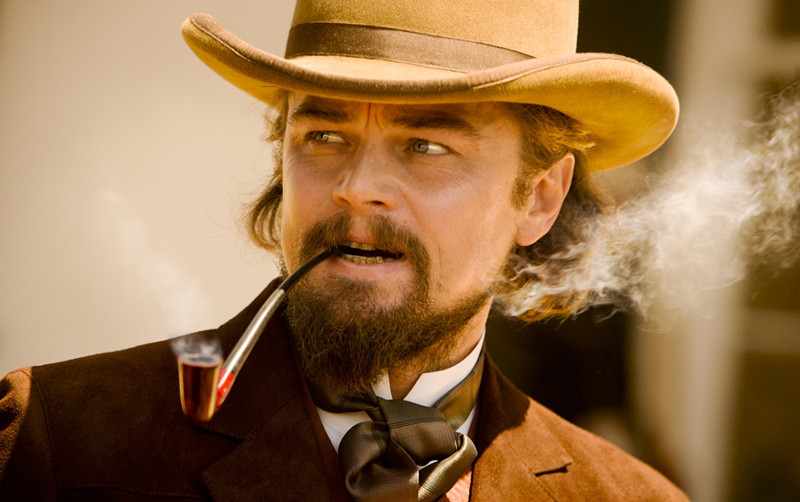
The most outright entertaining film on this list, Django Unchained (2012) saw Quentin Tarantino turn his artistic eye toward the Western genre for the first time, and the results were spectacular.
Inspired by the influence of Spaghetti Westerns, it follows a bounty hunter, Dr. Schultz, and a freed slave, Django, as they face off against an evil plantation owner in the antebellum South. It’s at once a revenge thriller, a love story, and a revisionist Western (Tarantino himself called it a ‘Southern’). It’s expectedly playful: rap music cues are used to inform the action at various points; a hilarious scene reduces a proto-KKK to buffoons as they argue about over the design of their white hoods.
Tarantino draws broad but devilishly skillful performances from all the main actors. Jamie Foxx keeps it simple as the freed Django, allowing for his partner Christoph Waltz to shine as the German ‘dentist’; every syllable uttered by his Dr. Schulz drips with humor and vitality. Leonardo DiCaprio also gives an unexpected turn as the villainous Calvin Candie, backed by Samuel L. Jackson as his menacingly loyal house slave Stephen.
Django Unchained is not without its detractors, who tend to focus on its perceived exploitative tone and historical inaccuracies. Tarantino, however, didn’t aim to create realistic piece or a documentary of the time, and accusations like this miss the fact that it is a pulpy, albeit deep, work of entertainment. And the director is keenly aware that his place is not in presenting powerful psychological or intellectual dramas regarding an issue; that is not his wheelhouse.
Rather, he knows that sometimes it’s just as cathartic to be shown clear heroes and villains to root for and against, whether they be Nazis or slave owners. Watching the subversive Django, an African-American leading man in a Western film, emerge triumphant at the end with his wife Broomhilda is to have experienced an exhilarating vision of a period of American history; Tarantino felt like a man himself unchained and American cinema in 2012 was better for it.
7. Boyhood
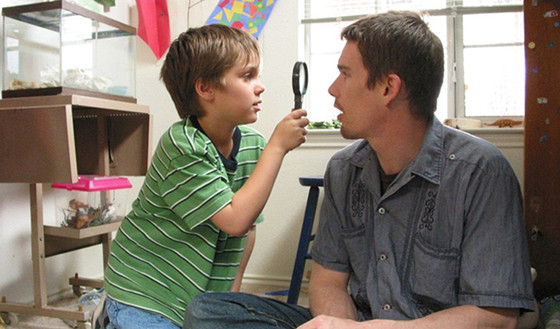
Boyhood (2014) is a coming-of-age film on the grandest scale. Beginning production in 2002 and lasting 12 years, Richard Linklater’s methods made for a profound meditation on time and our interaction with it. The actor playing the main character, Mason, was cast in the project at the tender age of seven and Ellar Coltrane returned to the role until his nineteenth birthday. The other core cast members, too, were played by the same actors: Patricia Arquette and Ethan Hawke as Mason’s divorced parents; Lorelei Linklater (the director’s daughter) as his older sister.
We watch Mason grow up, as he journeys from middle school to college. His mother falls in and out of love while she studies for a psychology degree, he fights with his sister, he spends weekends camping and exploring with his dad; the plot is intentionally mostly undramatic, capturing the fleeting feeling of one’s past moments. Boyhood is so rich and ambitious in form that it seems impossible to create a better coming-of-age film.
While other films preceding it have highlighted a character’s growth, nothing has ever been conceived with this much passion and attention. It feels like a total encapsulation of childhood: Mason at first remains mostly in the background, as his parents fight, as he learns to cope with new experiences and new places, before emerging as the main character in his own story when he gains confidence and realizes that photography is what he wants to pursue in life; growing up is delicate and awkward and it takes time for one to find their place.
Boyhood is a masterful combination of scope and execution, and in its totality represents an unmatched cinematic achievement. It might perhaps be the greatest thing Linklater ever does in cinema.
6. Moonlight
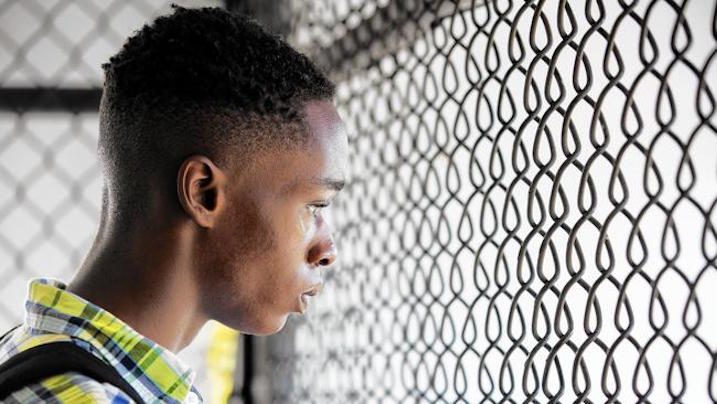
Last year’s Academy Award winner for Best Picture (eventually) is a miraculous cinematic work: small in production and budget but immense in story and result. A coming-of-age story of a young African-American written and directed by Barry Jenkins, the film is split into three chapters of its subject’s life, titled by the different monikers he goes by during each period: as a boy, Little, when he’s taken under the wing of a local drug-dealer; as a teenager, Chiron, who begins to fall in love with his best friend; and as a young man, Black, trying to reconcile his inner identity with his new life as a tough drug dealer.
Outwith its importance in themes and subject, the film is a poetic treasure. Working with cinematographer James Laxton, each frame is filled with a tender quality, a visual splendor atypical of its narrative form. They forego the stereotypical grit and realism usually associated with such an urban story in favor of a lyrical, mystical presentation. Indeed, even Miami has never been shot like this, with the focus very much on the glow of the beaches and the water giving it an ethereal feel.
The dreamlike nature of Moonlight perfectly captures the heartbreaking life of its protagonist. The actors portraying him are astoundingly consistent: there’s never the sense that one is imitating the other, with the focus instead on character growth. Mahershala Ali and Naomie Harris as Juan the drug dealer and Chiron’s drug-addled mother, Paula, are handled so delicately to never succumb to stereotype.
The whole film is a carefully handled piece, never descending into moralizing or preaching; Jenkins shows his troubling themes quietly through character. Much of what resonates is often unsaid, too: the viewer feels the emotion in the nervous glance of Chiron and Kevin on the beach as they realize that their relationship might be more than it seems; the sad, lonely eyes of Chiron as a boy seem to reflect in him as an alienated man.
What Moonlight (2016) ultimately achieves is providing a platform for an unheralded identity, that of the troubled masculinity of young African-American men. It’s an essential film, an eloquent portrait of a struggling person whose plight is sadly universal.